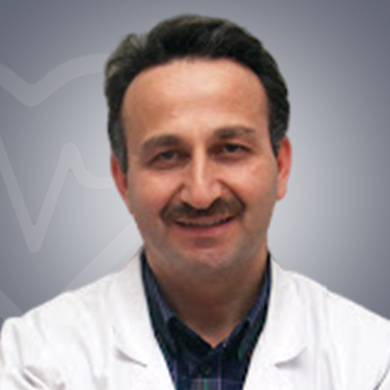
28 Years of experience
Speaks: English
Some of the conditions treated by opthalmologist Dr Yavuz Selim Dayioglu include:
Some of the most common eye conditions that the ophthalmologist treats are Diabetic Retinopathy, Dry eye Syndrome, and Conjunctivitis. The doctor might prescribe some antibiotics for bacterial conjunctivitis. Antibiotics might help lessen the length of infection. For dry eyes, the doctor will do physical examinations, and treatment may include use of artificial tears and reduce tear drainage.
Eye conditions can produce the below-listed conditions However, symptoms might vary from person to person. Every condition has its symptoms.:
Routine eye exams are the best way to avoid any vision problems. In case you did not have an eye exam for more than a year, you should schedule a visit with your eye doctor. Being aware of some warning signs can help you take the required steps for the health of your eyesight, especially if the vision symptoms appear suddenly. In most cases, detached retina and onset of glaucoma, quick intervention is required to minimize the permanent vision loss.
The working hours of doctor Yavuz Selim Dayioglu are 10 am to 5 pm. The average work hours of the doctor is 47 hours per week.
Ophthalmologist Yavuz Selim Dayioglu has performed a wide range of procedures. Some of the popular procedures performed by the doctor include:
LASIK (Laser in Situ Keratomileusis) uses a laser to reshape the cornea. This procedure uses a certain laser designed to treat vision issues, improve vision, and also reduce the need for glasses and contact lenses. The laser alters the shape of your cornea.

Share Your Experience about Dr. Yavuz Selim Dayioglu

An ophthalmologist is a medical doctor who is trained in vision and eye care. Ophthalmologists are different from optometrists and opticians because of their different levels of training and the conditions they diagnose and treat. Some ophthalmologists work closely with other medical experts to provide care for chronic eye conditions. An ophthalmologist also diagnoses as well as treats eye conditions, does eye surgeries, and participates in scientific research on the causes and treatment for eye diseases and vision issues. Sometimes, ophthalmologists also detect health issues that are not related to the eyes but become clear in a routine eye exam. The ophthalmologist recommends that the person should consult their doctor.
An opthalmologist may suggest the below-listed tests for the diagnosis of eye conditions:
An opthalmologist may perform a number of different tests to evaluate your vision and diseases. Each test will evaluate some specific aspect of vision. The doctor may direct a beam of light in your eyes to look for any abnormalities in the retina. They design the treatment plan posts after evaluating the test reports.
An individual needs to consult an opthalmologist in case of the below situations:
If you notice the above-listed signs and symptoms, you are suggested to see an opthalmologist for a proper diagnosis of the condition. The opthalmologist will evaluate the test reports and will plan the treatment that is best for you.